Know what I love about being a content creator? Actually creating content.
What I don’t love, is spending hours searching for keyword phrases that will ensure that content actually ranks.
If, like me, your job involves constantly navigating the treacherous waters of search engine optimization – you’ll know that keywords aren’t the only things that matter these days. But they’re still important.
The tricky part isn’t really learning how to use these terms in your content – it’s figuring out which ones you should be targeting in the first place.
That’s where AI tools for keyword research come in.
They can scan through mountains of search engine data faster than you can say “SERP”, and help you pinpoint really competitive terms.
But not all of these tools are as great as they seem.
That’s why I tested some of the top tools for AI-based keyword research, to see which ones really drive serious results – and which just complicate the content journey.
What is an AI Keyword Research Tool?
First things first, an AI keyword research tool is a handy bit of software that uses artificial intelligence, large language models, machine learning, and so on, to help you identify keywords for the content you want to produce.
For instance, if I was using one of these tools for this article, it might suggest targeting terms like “AI Keyword Research” or “AI SEO”.
What makes my favorite AI keyword research tools so awesome is that they don’t just give you lists of terms with the average “volume” insights, and “keyword difficulty” scores. They can actually take extra data into account when showing you what to target.
Case in point, SEMRush lets you input your URL so it can give you genuine insights into what kind of terms your site should target.
Ahrefs gives you insights into customer intent when you’re exploring keywords, and helps you brainstorm long-tail terms with AI suggestions.
And let’s not forget the real-time updates. Instead of relying on outdated keyword databases, many AI tools scan search engines constantly, giving you the freshest keyword insights as trends shift.
This means no more guessing what’s relevant – AI figures it out for you.
You get the picture.
Why Use an AI Keyword Research Tool?
So, why bother with an AI keyword research tool?
Well, I’ve already mentioned why AI-powered SEO tools are a lot better than old-fashioned alternatives. They give you more data, more personalized insights, and extra features. Some solutions can even help you to create rankable content after you identify relevant phrases – (shoutout to SEMRush and ContentShake).
But maybe you’re thinking – can’t I just ask ChatGPT or Google Gemini to give me keyword ideas?
The simple answer is yes – you can, but you’re not going to get the same results. ChatGPT, for instance, doesn’t have access to real time search data – even if it can browse the web, so it doesn’t really know how many people are searching for specific terms.
You might think that Google Gemini can access ranking data (since it’s connected to Google) – but that’s not actually the case. Working with a specialist keyword research tool gives you access to more than just ideas.
You get the search volume, keyword difficulty, intent analysis, and other data you need to actually choose the right keywords.
Plus, many tools offer access to other SEO tools, like solutions for backlink analysis, site audits, rank tracking, and so on. It’s just a better all-around experience for SEO pros.
The Best AI Keyword Research Tool Overall: Semrush
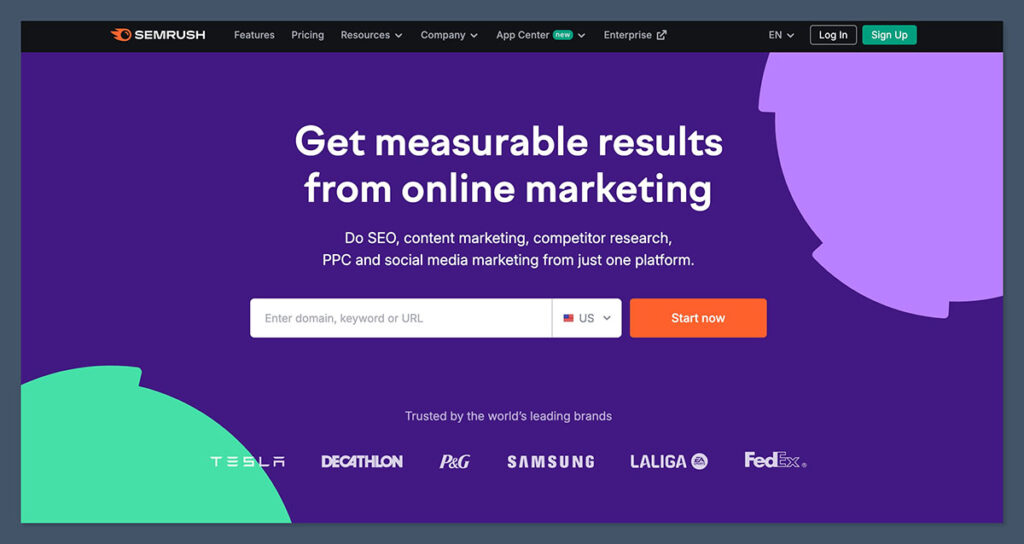
Alright, enough build-up, let me officially introduce you to my number one AI keyword research tool: Semrush.
Sure, I had a soft spot for Semrush already – even before it introduced AI capabilities – I’ve been using this system for years. But now, it really is better than ever.
Let’s start with the fact that Semrush infuses AI into every part of the SEO research process. Every keyword research tool (Keyword overview, the Keyword Magic Tool, etc), comes with an AI-powered feature.
For instance, when you’re using the Keyword Magic Tool, you can ask AI to check your domain to give you personalized data.
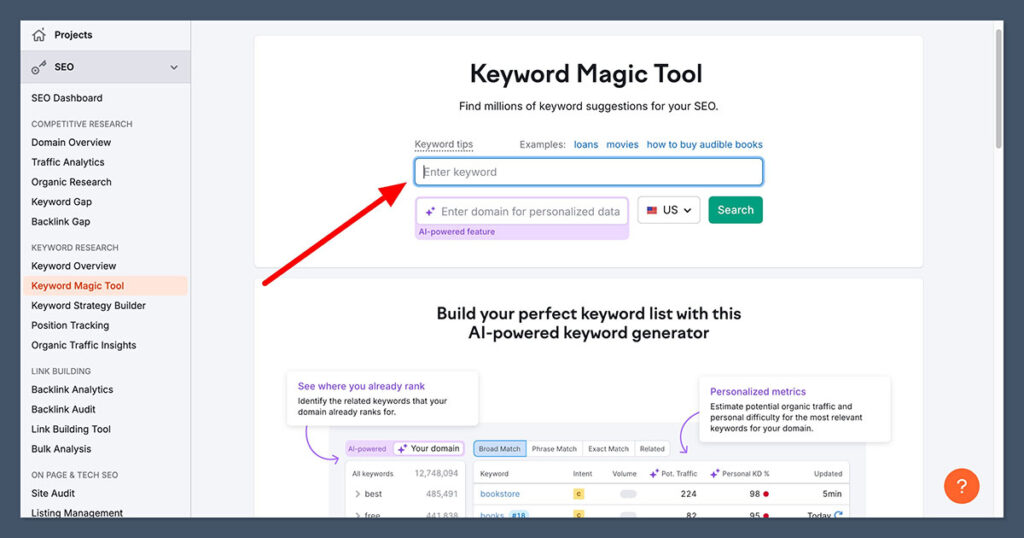
This is awesome because it allows you to target specific terms that you’re more likely to rank for.
This tool has drawn my attention to keyword phrases that I would have otherwise avoided (due to high difficulty scores), by showing me that a specific domain has more potential to rank for them.
Why Semrush is the Best
With Semrush, you get
- Personalized metrics: Up-to-date insights on how your domain will actually rank for specific keywords and phrases (as well as insights into what you’re already ranking for).
- Keyword strategy development: Use AI to give you a full list of semantic terms and topics for a specific piece of content, or build out an entire SEO strategy.
- AI analytics: Dive deeper into your keyword research with rich insights relevant to your industry, competitors, and even your target audience.
Not to mention, you can also combine the AI-powered keyword research tools, with AI-powered features for link building, content creation (ContentShake), and traffic analytics too.
Who Should Use Semrush
Simply put, if you’re not using Semrush in your SEO strategy yet – I’d recommend you start.
Using this tool, I’ve skyrocketed countless pieces of content to the top of the search results – and saved a lot of time and energy on my workflows.
Where Semrush Falls Short
There is a downside. Semrush isn’t exactly cheap – particularly if you want to access some of the advanced features – like the content marketing toolkit, and Looker studio integration.
You can end up spending around $500 per month – so it’s not for the ultra-budget-conscious among you.
3 Other Top AI Keyword Research Tools: Tested and Ranked
Semrush might be the big daddy of AI SEO tools (at least in my eyes), but there are some other great solutions out there too.
Based on all the options I’ve tried, here are my top 3 “alternative” picks:
Ahrefs: Best for Insights Across Search Engines
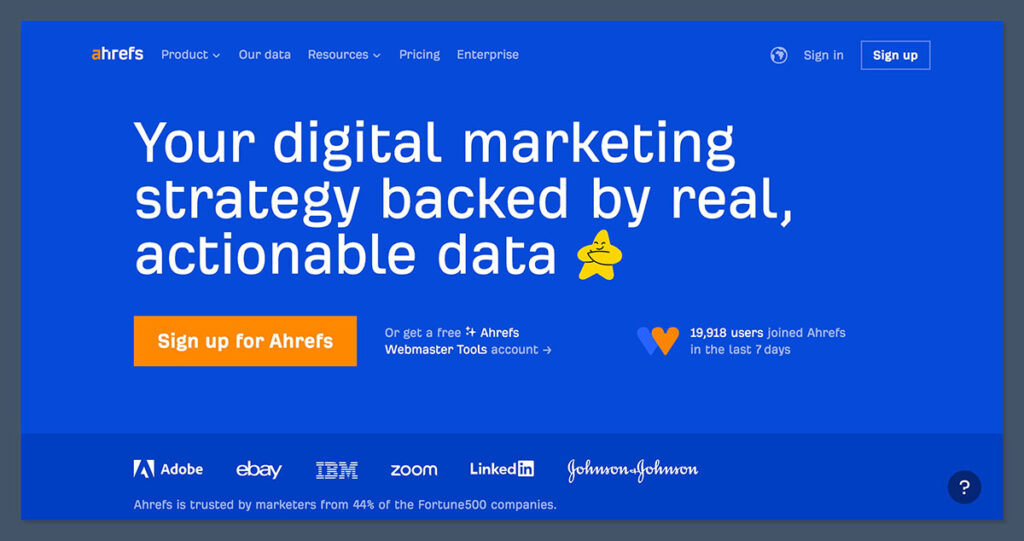
- Pricing: Starting at $99 per month (paid annually)
- Free trial: For some tools
- Website: https://ahrefs.com/
Ahrefs is another tool I have a lot of experience with as a content creator. It’s always been great for gaining insights into your competitors and marketing data. The AI tools are pretty impressive here – particularly for keyword researchers. You can:
- Get instantly generated keyword suggestions for a range of search engines
- Access AI search intent insights
- Get help creating AI content
- Leverage AI for technical SEO audits
What I Like About This AI Keyword Research Tool
The best thing about Ahrefs is that it doesn’t focus exclusively on Google when it’s helping you identify crucial keywords.
When you load up the “AI suggestions” feature in the keyword explorer, you can ask it to focus on high-value terms across different channels, like YouTube, Amazon, or Bing. That’s great if you want to branch outside of Google.
You also get a lot of different keyword ideas (including long-tail phrases), and you can constantly update your instructions to get keywords in other languages, or fine-tune responses.
I also love how much data Ahrefs gives you – particularly about search intent. You can immediately identify the “intent” of customers looking for specific keywords, which makes it easier to create more compelling content campaigns.
Best for: Content creators that want to expand their content’s reach beyond Google, and access valuable intent data.
Downside: The pricing can be a major barrier for individuals and startups with limited budgets.
Moz Pro: Best for Domain & Competitor Insights
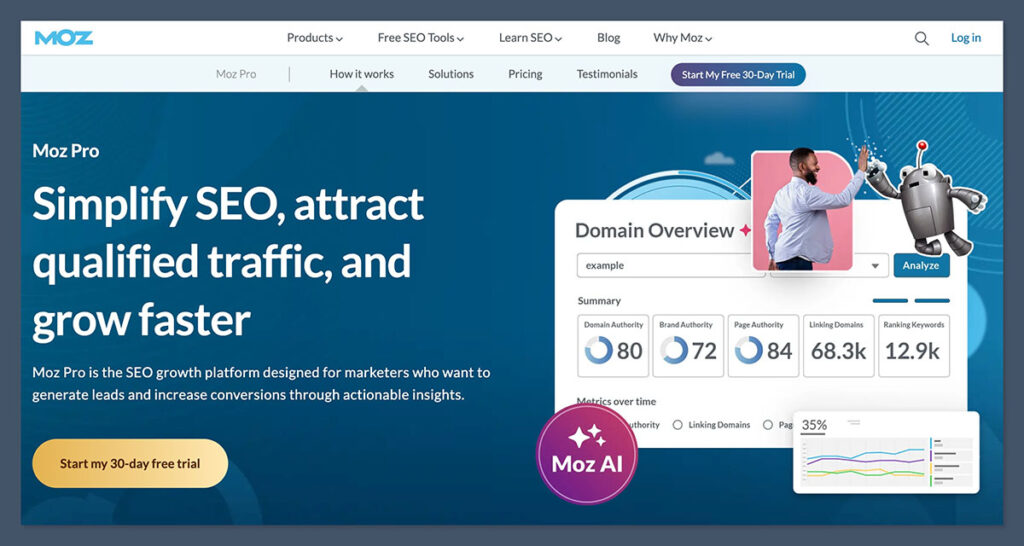
Pricing: Starting at $49 per month
Free trial: 30 days
Website: https://moz.com/
Moz has been infusing artificial intelligence into its SEO solutions for a while now.
As of 2024, the platform is more powerful than ever before. Last year, the company introduced a full suite of “Moz AI” tools for Pro plan users, offering access to:
- New intent insights in the Keyword Explorer
- Domain snapshots powered by AI
- Enhanced AI ethics and risk management tools
What I Like About This AI Keyword Research Tool
Honestly, there are a lot of things to love about Moz.
First, I’m a big fan of how user-friendly the whole searching experience actually is – even if you’re not an SEO master. The keyword explorer, with it’s new AI-powered features, is particularly intuitive, making it simple to drill down into keyword lists, and align your choices with intent metrics.
Those intent metrics are super in-depth too – thanks to Moz’s two-layer process that uses a ML classification model and a rules-based model at the same time.
Moz is also fantastic for getting more granular insights into keyword opportunities for your specific domain – like Semrush.
Once you plug your domain into the system, it can help you identify domain search themes, and keyword topics instantly.
That saves me a lot of time when I’m planning out pillar content strategies and “content buckets” – you’ll know what I’m talking about if you’re in the content industry.
Best for: SEO maestros in small to mid-sized businesses that want an easy way to get insights into domain-specific keywords and content strategies.
Downside: Moz’s keyword database is a little smaller than that of some competitors, and it doesn’t have the same “advanced” features as some alternatives.
Surfer SEO: Best for Keyword Research in the Flow of Work
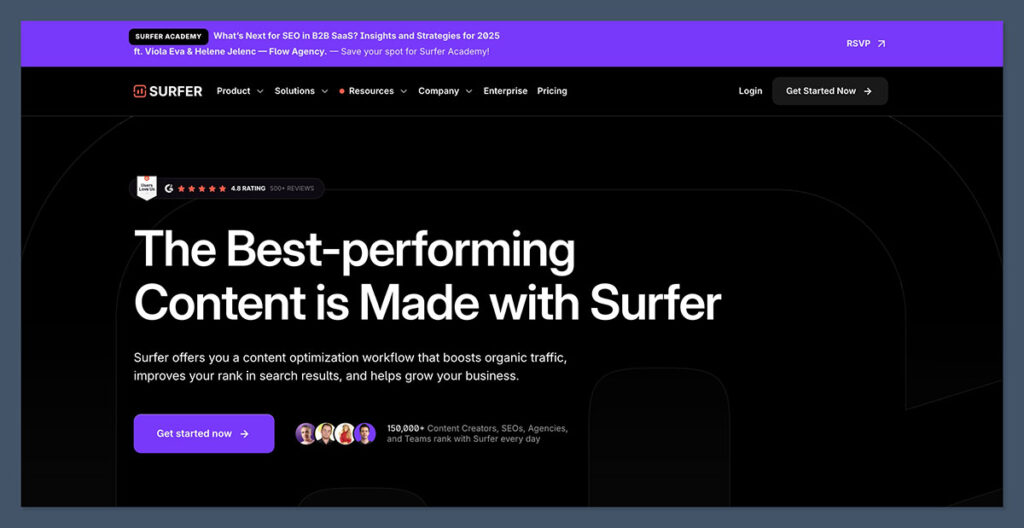
Pricing: Starting at $79 per month
Free trial: 7-day money back guarantee
Website: https://surferseo.com/pricing/
I’m a huge fan of Surfer SEO for a few reasons. It’s convenient, easy to use, and gives you direct access to SEO data when you’re actually writing.
That means you’re not constantly moving back and forth between apps to figure out if you’ve used certain terms the right number of times.
With Surfer SEO’s keyword tools, you can:
- Instantly identify relevant keywords based on news and specific topics
- Monitor your content’s SEO in real-time, with instant scores and updates
- Automatically add keywords and backlinks into your content as you write
What I Like About This AI Keyword Research Tool
What I love most about Surfer SEO is that it keeps me focused and on-task.
I’m not constantly referring to a specific list of keywords and marking off how many times I’ve used them. The tool does that form me, so I can focus on making the content as appealing and engaging as possible.
Once I’ve found a relevant keyword I want to rank for, I can input the term into Surfer SEO, and it will automatically generate a list of related and semantic terms to include in the article.
Then I can start writing immediately, in the same interface – tracking my progress as I go.
You can even access advanced tools throughout the process, creating a topical map of your domain or a specific topic, so you know how to progress from one content piece to the next.
Best for: Content creators who want to save time and energy when optimizing their pieces for the search engines.
Downside: Not as advanced for central keyword research as some other tools, like Semrush.
The Best AI Tools for Keyword Research: Final Thoughts
Ultimately, AI keyword research tools are a real blessing in the SEO landscape – saving us content creators serious effort when it comes to creating pieces that can actually rank.
Whether you’re just getting started in the SEO space, or you want to level-up your game, I definitely recommend giving at least one of these tools a try:
- Semrush for the best all-around AI experience
- Ahrefs for robust multi-search-engine analysis
- Moz Pro for excellent domain insights
- Surfer SEO for streamlined SEO support in the flow of work
Not sure which option to go for? Most offer a free trial or demo, so I’d recommend testing those out first. Yes – upgrading with a few of these tools can be expensive.
Trust me though – it’s worth it for all the time and energy you’ll save.

Comments 0 Responses